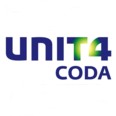Your company may be better suited to a "best-of-class" approach in which your financial applications can be configured easily to adapt to changing business conditions.
Editor's note: This article introduces the white paper "The Best-of-class Financial Systems Strategy: An Alternative to ERP Platforms" available free at the MC White Paper Center.
For better or worse, most companies have purchased financial software from large-scale Enterprise Resource Planning (ERP) platform suppliers over the last decade. But as companies search for ways to lower costs and respond to a difficult business climate, the merits of implementing large-scale ERP platforms have come under close scrutiny. This article will examine an alternative approach that may be more appropriate and strategically sound for many companies: a best-of-class systems strategy.
With that notion in mind, this article will contemplate the following questions:
- Have ERP platforms grown too unwieldy for some organizations?
- Does ERP make sense for all types of business, especially in today's fast-changing and frugal business environment?
- Are ERP platforms being sold to companies that simply don't need it?
- Have technological advances eliminated some of the reasons for ERP platforms in the first place? Is the drive for competitive differentiation causing companies to develop more of their own operational systems, thereby eliminating the value of ERP?
- What does a best-of-class strategy entail, and what are the advantages?
The Morphing of ERP—Evolving from Applications to Platforms
ERP systems have grown in depth and breadth over the last 20 years, offering a wide variety of applications ranging from accounting to warehousing. However, ERP now embodies much more than an application suite. ERP has evolved into a development and operating platform, with a full stack of modules, tools, and middleware. For some, this evolution has not been beneficial for a number of reasons:
- Although ERP is touted as a single architecture, ERP applications usually contain different generations and sources of technology. Third-party applications are acquired and amalgamated into the platform, sometimes by name only. In total, this makes the environment complex for the customer and difficult to change over time.
- Complex layers and mixtures of technology require specialized consulting and technology expertise to deal with the complexity. This has made ERP difficult and costly to change as the business changes.
- ERP suppliers have become system integrators. The sheer size and number of applications makes moving all the applications forward a difficult task. Application functionality often lags.
- And finally, there is a prevailing attitude that ERP costs are getting out of hand. Some call it a backlash against "Big ERP."
Want to Learn More?
Download the white paper "The Best-of-class Financial Systems Strategy: An Alternative to ERP Platforms" available free at the MC White Paper Center.
as/400, os/400, iseries, system i, i5/os, ibm i, power systems, 6.1, 7.1, V7,












 IT managers hoping to find new IBM i talent are discovering that the pool of experienced RPG programmers and operators or administrators with intimate knowledge of the operating system and the applications that run on it is small. This begs the question: How will you manage the platform that supports such a big part of your business? This guide offers strategies and software suggestions to help you plan IT staffing and resources and smooth the transition after your AS/400 talent retires. Read on to learn:
IT managers hoping to find new IBM i talent are discovering that the pool of experienced RPG programmers and operators or administrators with intimate knowledge of the operating system and the applications that run on it is small. This begs the question: How will you manage the platform that supports such a big part of your business? This guide offers strategies and software suggestions to help you plan IT staffing and resources and smooth the transition after your AS/400 talent retires. Read on to learn: Business users want new applications now. Market and regulatory pressures require faster application updates and delivery into production. Your IBM i developers may be approaching retirement, and you see no sure way to fill their positions with experienced developers. In addition, you may be caught between maintaining your existing applications and the uncertainty of moving to something new.
Business users want new applications now. Market and regulatory pressures require faster application updates and delivery into production. Your IBM i developers may be approaching retirement, and you see no sure way to fill their positions with experienced developers. In addition, you may be caught between maintaining your existing applications and the uncertainty of moving to something new.
LATEST COMMENTS
MC Press Online